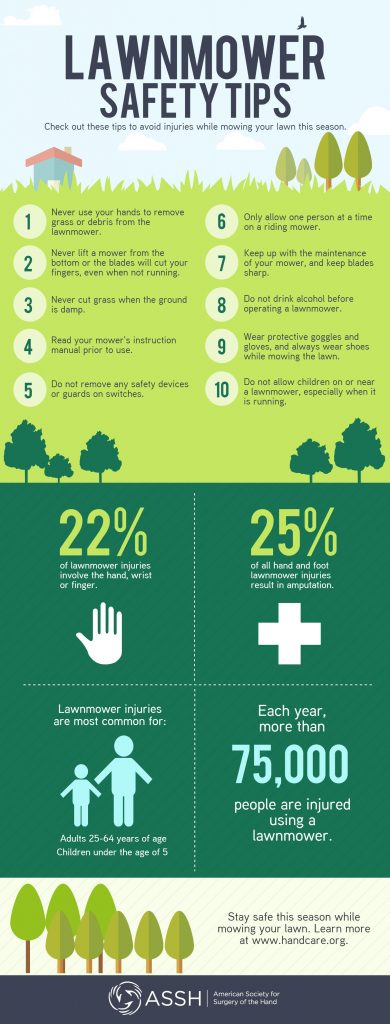Tips so cutting the grass doesn’t become hazardous to Iowans’ health
August 6th, 2024 by Ric Hanson
(Radio Iowa) – It’s a chore many Iowans tackle every week without a second thought, but mowing the lawn can be hazardous, especially for a teenager who’s just taken over the job. Kelly Hilsabeck, the trauma injury prevention coordinator at Gundersen Health System, says there are 85-thousand lawn mower injuries every year nationwide. “They can range from very minor, like a small burn or a cut, to very major like an amputation, broken bones,” Hilsabeck says. “A lot of that can result from blade contact, so we really want to take some safety precautions to avoid that. First of all, we should know how to operate our lawn mower before using it.”
You also need to dress for the job, including long pants, eye and hearing protection, and good shoes — no flip-flops. One of the biggest risks with lawn mowing is accidentally coming into contact with the spinning blade. “The big thing with blade contact is if we need to clear out any debris, any grass under the mower, make sure it’s off, but go ahead and take that extra step and disconnect that spark plug,” Hilsabeck says. “That’s just going to prevent that blade from spinning quickly around in a rare event that once you do clear that debris, that it would do that and cause a serious injury.” 
The mower blade is also a hazard, in that it could launch — at a high rate of speed — anything you run over. “We really want to be aware of projectile hazards when going to mow,” Hilsabeck says. “Look over your lawn before mowing. Remove any rocks, twigs, toys that might be outside, because in the event that you do run it over, a lawnmower can spit it out at over 100 miles per hour and cause an injury to yourself or anybody close by.” Add gas to the mower before starting it up, and she suggests if you need to refill the tank during the job, let it cool off first so there’s no risk of spilling fuel on any hot parts.
Gundersen Health System has clinics in Calmar, Decorah, Fayette, Lansing, Postville and Waukon, and a hospital in West Union.





